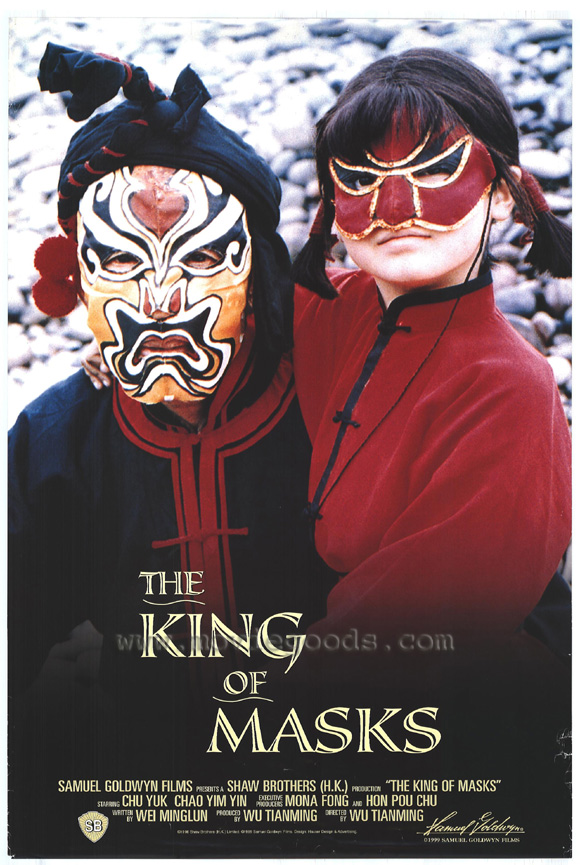Film Friday
This summer will see the sixth season of a unique “movies and music” series that I run. In conjunction with the St. Mary’s College River Concert Series, which draws 3000-5000 people each Friday night, we show a Wednesday night film followed by a short concert. The excitement of the series lies in the unexpected ideas that arise when one pairs two different art forms.
One of the most interesting pairings involved the Chinese film King of Masks followed by an ensemble of Chinese women musicians who were touring the United States performing ancient Chinese instruments. Some explaining is necessary to get at why the evening proved extraordinary.
King of Masks is a charming film, set in the early 20th century (I think), about a Chinese street artist, Wang Bianlian, who specializes in the ancient art of changing identities through masks. Because the art form is dying out, he buys a boy (children are readily available from desperate parents) to whom he will pass along his secrets—only the “boy” he chooses turns out to be really a girl passing as a boy as no one wants girls. When the traditionalist Wang discovers the imposition, there is a serious conflict, but in the end he reconciles with his daughter and teaches her his art.
Witnessing the Chinese female musicians immediately after the film set off a fascinating dialogue in our heads. First, we realized that women would not have been performing upon these instruments in ancient China. Therefore, they represented the advances in gender equality that the film was showing. Furthermore, the Chinese Communist and Cultural revolutions, while they opened up opportunities for women, also sought to erase China’s high culture past. In recent years, however, China has been reclaiming this past, just as the King of Masks seeks to keep alive an ancient tradition. Therefore, the evening concert showed us contemporary China’s new synthesis, liberated women reclaiming ancient arts that the Communists had tried to erase and from which women had been excluded. In the movie’s finale, we see the street performer’s daughter proving herself an able apprentice.
One other aspect of the film is worth mentioning. The film includes Chinese opera along with the art of masks. The cultural revolution might have been tolerant of street art, which came from the lower classes, but it was definitely antagonistic to opera. In the film, a celebrated female impersonator invites the impoverished street artist in and acknowledges him as the greater artist. She/he asks him to join the troupe but the artist stays true to his street roots. So there’s still a populist message, even though the film does not reject Chinese opera.
Qhen we set up the evening pairing, we had no idea that such a dialogue would ensue. Such richness has occurred often enough, however, that we are no longer surprised. Other highlights of past summer seasons have been:
–an Italian brass ensemble performing after the British film All Brassed Off;
–a Gallaudet School for the Deaf dance troupe performing after the fine German film Beyond Silence, about the hearing child of deaf parents who plays the clarinet
–Brian Ganz, our college’s charismatic pianist and winner of a number of prestigious international world competitions, contrasting live performance with studio performance following Thirty-Two Short Films about Glenn Gould. On another evening, Brian also gave us a fascinating perspective on Chopin after we all watched the film Impromptu.
I have organized countless film series over the decades but this one stands out. If you’re in the area, come visit. You can find the schedule here.


